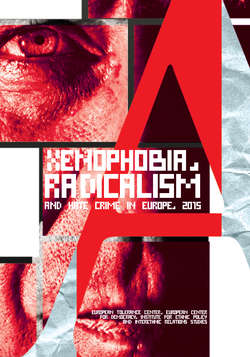Читать книгу Xenophobia, radicalism and hate crime in Europe 2015 - Коллектив авторов, Ю. Д. Земенков, Koostaja: Ajakiri New Scientist - Страница 5
2. law enforcement practice
ОглавлениеLaw enforcement practice is influenced not only by the legislative norms concerning minorities, but also by the level of professionalism and personal views among law enforcement officers. In 2015, law enforcement practices aimed at combating hate crime, discrimination, and radicalism revolved around the following priorities:
– Prevention of extremist activity.
– Combating illegal immigration and establishment of infrastructure for refugees.
– Combating xenophobia and racism, ensuring peaceful inter-ethnic relations.
– Integration of refugees and Roma (travellers).
Often, progress in one area had led to deficits in another. For example, measures of terrorism prevention often encroached on minority rights, while measures against illegal immigration violated the rights of asylum seekers.
Following a wave of terrorist attacks, Europe adopted a series of counter terrorism laws in 2015, which resulted in a wave of repressions against persons suspected of extremist activity. In January 2016, French President Francois Hollande reported that in 12 months, French security services have prohibited 200 people from leaving the country and 50 people have been denied entry on suspicion of links to extremist groups. From November 2015, when a state of emergency was introduced across the country until mid-January 2016, French police had carried out 3,336 administrative searches, 290 people have been placed under house arrest, and 344 people have been arrested.[51]
British, German, and Italian law enforcements were following similar policies in 2015, albeit not as strict.
These measures have sometimes impacted law-abiding citizens. Human rights observers note that most cases are related to national or religious minorities that were suspected of links to the so-called Islamic State (ISIS). One of the most notable cases occurred in the United Kingdom, which had recently adopted a 2015 Counter Terrorism and Security Act that places a statutory duty on schools and colleges to prevent people being drawn into terrorism.[52] There, a 10-year-old Muslim boy who misspelled a word during an English lesson, wrote that he lived in a “terrorist house.” The primary school pupil meant to write that he lived in a “terraced house”, but this did not stop the police carrying out a thorough search of the house and examining the family computer. Both police and social services had carried out extensive interviews with the boy to establish whether or not his family has any ties with extremist organisations.[53] Another Muslim schoolboy was questioned about Islamic State after the 14-year-old used the term “ecoterrorism” during a classroom discussion about environmental activism.[54] In another ironic incident, Muslim postgraduate student of counter-terrorism, Mohammed Umar Farooq, was falsely accused of being a terrorist after an official at Staffordshire University had spotted him reading a textbook entitled Terrorism Studies in the college library. According to his own accounts, he was questioned about attitudes towards homosexuality, Islamic State, and al-Qaida.[55]
51
„France: 3336 perquisitions administratives”, Le Figaro, 9 February 2016,
http://www.lefigaro.fr/flash-actu/2016/02/09/97001-20160209FILWWW00269-etat-d-urgence-3336-perquisitions-administratives.php.
52
http://www.publications.parliament.uk/pa/bills/cbill/2014-2015/0127/en/15127en.htm
53
http://www.huffingtonpost.co.uk/2016/01/20/muslim-child-terrorist-house-spelling-error_n_9025336.html
54
https://www.theguardian.com/education/2015/sep/22/school-questioned-muslim-pupil-about-isis-after-discussion-on-eco-activism
55
https://www.theguardian.com/education/2015/sep/24/student-accused-being-terrorist-reading-book-terrorism
